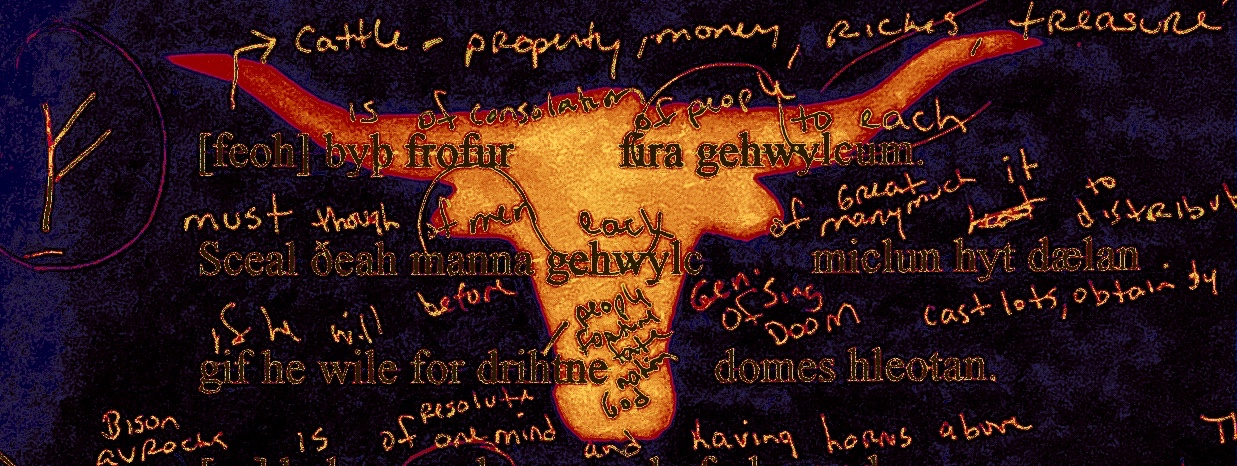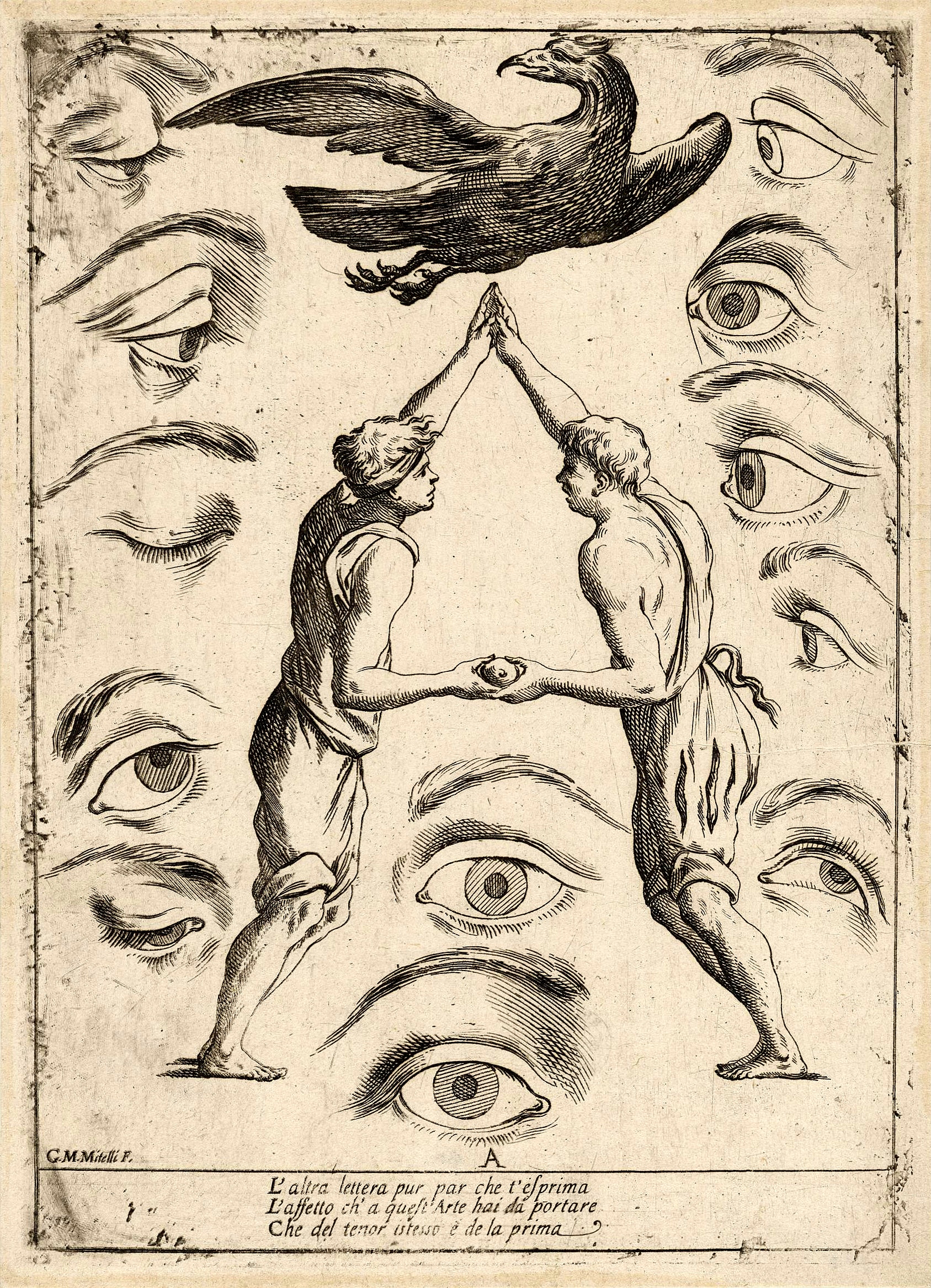 Feoh means cattle, which meant everything to the rune carvers. People kept sheep and pigs, but it’s the cows that were the money. Cattle are useful, they pull things, they’re delicious, you can make stuff out of their fat and their hides. Lots of stuff. Good stuff. Stuff people depend on and value. Stuff you must give away. You must. Yes this stanza says the people sceal spread it around, it sounds like shall, but the meaning is more of a must than that. You shall and you will and you had much better do it than don’t.
Feoh means cattle, which meant everything to the rune carvers. People kept sheep and pigs, but it’s the cows that were the money. Cattle are useful, they pull things, they’re delicious, you can make stuff out of their fat and their hides. Lots of stuff. Good stuff. Stuff people depend on and value. Stuff you must give away. You must. Yes this stanza says the people sceal spread it around, it sounds like shall, but the meaning is more of a must than that. You shall and you will and you had much better do it than don’t.
Do what?
Daelan. Deal it out. Give it away.
Why? That’s gif he wile. If you will.
You will. It’s a big mistake not to, the last line says so. What you do with your wealth you do in front of God and everybody, and fate has a way of paying attention to how you roll the bones on this one. Give it to people. That’s what to do when the Gods are watching, and they are always watching.
How much?
Miclun, much. Your own worth depends on it, and by that I mean your own doom. Dom means doom, and to anybody who was thinking in Old English, doom means fate, law both divine and otherwise, wisdom, so many things, free will and self assessment, fame and glory. It means everything.
Spelled domes, dom means of doom, genetive singular, so something belongs to doom in some way. Maybe the helotan (to cast lots) right next to it, that could be a weak noun as in those are doom’s lots you are casting, but it’s much more likely an infinitive verb. Verbs often hang out at the ends of Old English sentences, so maybe you’ll find out at your end that doom’s been the one casting the lots all along. This whole time. And when it is you slicing up a fruit bearing tree branch into twenty nine pieces and carving the alphabet into them so you can find out your doom, what you really do is invite judgement. You are casting lots before God, whichever ones you want. You do this right in front of them. What’s your fate going to be? What’s your destiny? You belong to doom, you’re not the one who’ll decide.



